5.

Star 13 year s ago
Thats why they invented google....and Charlize sound more sexy like that:
Afrikaans
Afrikaans is the third most common language in South Africa. It is spoken by 13.3% of the population, or 5 983 420 people – mainly coloured and white South Africans. The language has its roots in 17th century Dutch, with influences from English, Malay, German, Portuguese, French, and some African languages. One of the first works of written Afrikaans was Bayaan-ud-djyn, an Islamic tract written in Arabic script by Abu Bakr.
Initially known as Cape Dutch, Afrikaans was largely a spoken language for people living in the Cape, with proper Dutch the formal, written language.
Afrikaans came into its own with the growth of Afrikaner identity, being declared an official language – with English – of the Union of South Africa in 1925. The language was promoted alongside Afrikaner nationalism after 1948 and played an important role in minority white rule in apartheid South Africa. The 1976 schoolchildren's uprising was sparked by the proposed imposition of Afrikaans in township schools.
Afrikaans is spoken mainly by white Afrikaners, coloured South Africans and sections of the black population. Although the language has European roots, today the majority of Afrikaans-speakers are not white.
Most Afrikaans speakers (41.8%) live in the Western Cape, where it is the language of more than half of the provincial population. It is also common in Gauteng, where 20.9% of Afrikaans speakers live, making up 13.6% of the provincial population. Although only 9.5% of Afrikaans speakers live in the Northern Cape, it is the dominant language there, spoken by 68% of the provincial population. Afrikaans is also spoken by 9.3% of the people of the Eastern Cape, 11.9% of the Free State's population, and 7.5% of the people of North West.
Afrikaans
Afrikaans is the third most common language in South Africa. It is spoken by 13.3% of the population, or 5 983 420 people – mainly coloured and white South Africans. The language has its roots in 17th century Dutch, with influences from English, Malay, German, Portuguese, French, and some African languages. One of the first works of written Afrikaans was Bayaan-ud-djyn, an Islamic tract written in Arabic script by Abu Bakr.
Initially known as Cape Dutch, Afrikaans was largely a spoken language for people living in the Cape, with proper Dutch the formal, written language.
Afrikaans came into its own with the growth of Afrikaner identity, being declared an official language – with English – of the Union of South Africa in 1925. The language was promoted alongside Afrikaner nationalism after 1948 and played an important role in minority white rule in apartheid South Africa. The 1976 schoolchildren's uprising was sparked by the proposed imposition of Afrikaans in township schools.
Afrikaans is spoken mainly by white Afrikaners, coloured South Africans and sections of the black population. Although the language has European roots, today the majority of Afrikaans-speakers are not white.
Most Afrikaans speakers (41.8%) live in the Western Cape, where it is the language of more than half of the provincial population. It is also common in Gauteng, where 20.9% of Afrikaans speakers live, making up 13.6% of the provincial population. Although only 9.5% of Afrikaans speakers live in the Northern Cape, it is the dominant language there, spoken by 68% of the provincial population. Afrikaans is also spoken by 9.3% of the people of the Eastern Cape, 11.9% of the Free State's population, and 7.5% of the people of North West.
6.
bobbykewl 13 year s ago
I'm just tired of the media worshiping Africa like it's the center of the universe, and telling me I need to as well. It's not my heritage.
9.
Peanut 13 year s ago
Yes, yes. We all hear the theory of the birth of the human race took place in the heart of Africa. The thing that is bothersome is why the Europeans & Russians (white ethnic groups) and the Far East (Chinese, Japanese) advanced so quickly intellectually and artistically and the black Africans did not. This is a legitimate question. And, no, the answer is not because all the other ethnic groups kept them down.
14.
antitrollp4trol 13 year s ago
ishitpeanuts - Who are you actually calling a racist? Just because someone is white and from south africa doesn't mean they're a racist. You're vastly ignorant if you think that.



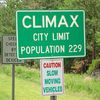
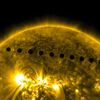
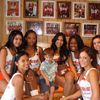
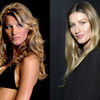
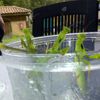
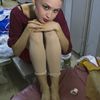
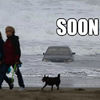
Afrikaans
Afrikaans is the third most common language in South Africa. It is spoken by 13.3% of the population, or 5 983 420 people – mainly coloured and white South Africans. The language has its roots in 17th century Dutch, with influences from English, Malay, German, Portuguese, French, and some African languages. One of the first works of written Afrikaans was Bayaan-ud-djyn, an Islamic tract written in Arabic script by Abu Bakr.
Initially known as Cape Dutch, Afrikaans was largely a spoken language for people living in the Cape, with proper Dutch the formal, written language.
Afrikaans came into its own with the growth of Afrikaner identity, being declared an official language – with English – of the Union of South Africa in 1925. The language was promoted alongside Afrikaner nationalism after 1948 and played an important role in minority white rule in apartheid South Africa. The 1976 schoolchildren's uprising was sparked by the proposed imposition of Afrikaans in township schools.
Afrikaans is spoken mainly by white Afrikaners, coloured South Africans and sections of the black population. Although the language has European roots, today the majority of Afrikaans-speakers are not white.
Most Afrikaans speakers (41.8%) live in the Western Cape, where it is the language of more than half of the provincial population. It is also common in Gauteng, where 20.9% of Afrikaans speakers live, making up 13.6% of the provincial population. Although only 9.5% of Afrikaans speakers live in the Northern Cape, it is the dominant language there, spoken by 68% of the provincial population. Afrikaans is also spoken by 9.3% of the people of the Eastern Cape, 11.9% of the Free State's population, and 7.5% of the people of North West.